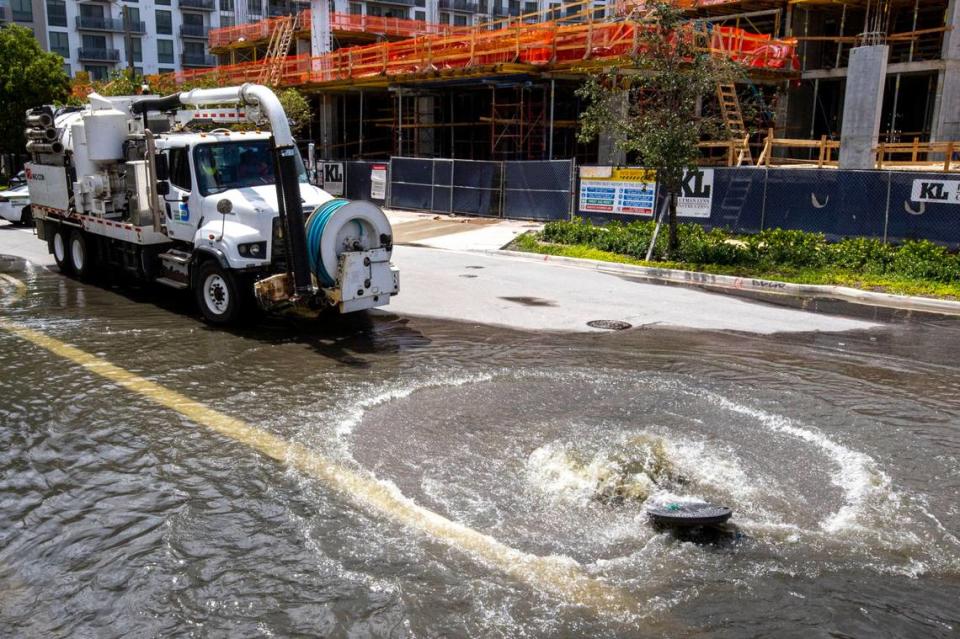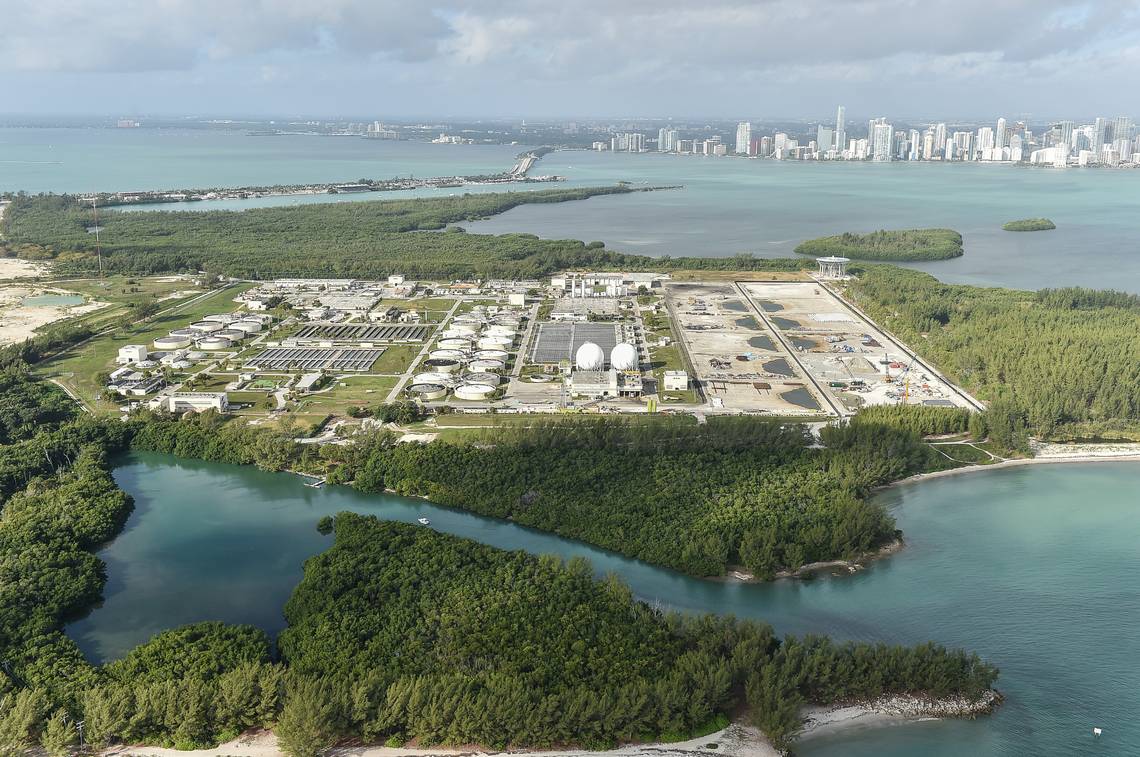Miami-Dade’s recent sewage spills have caught the eye of the state, which fined the county $123,000 for violating its agreement to stop spilling wastewater into the ocean and issued a stern warning: clean up your act.
Florida’s Department of Environmental Protection warned Miami-Dade in April that its wastewater treatment plant on Virginia Key had “multiple deficiencies,” including broken and trash-clogged equipment used to process waste and a “large number” of spills.
In a final order published Thursday, the agency listed some of the county’s recent spills, which violated a 2013 agreement with the state and the United States Environmental Protection Agency to fix the county’s aging and leaky sewage system.
The state said Miami-Dade had six wastewater spills between 2020 and 2022, a total of more than 8 million gallons — 7.4 million of which was recovered — and 24 “effluent exceedances” between 2014 and 2022, which is when the water released from the sewage facility isn’t fully treated to remove all bacteria.
For those spills, DEP fined Miami-Dade $123,000, and vowed to levy additional fines for any unauthorized spills from 2022 onward.
Roy Coley, head of water and sewer for Miami-Dade under Mayor Daniella Levine Cava, said his team has worked collaboratively with DEP on the issue, but the county commission will need to approve any formal action they take to solve it.
“We are working very fast and very hard to rebuild an aging utility that has experienced tremendous deferred maintenance. We are cognizant of many of these issues,” he said. “We want to get this stuff done and we want to get it done right.”
A plan to stop spills
As part of the order, DEP wants the county to develop a plan to stop future spills within 90 days. The plan is supposed to address one of the biggest problems in Miami-Dade’s sewage system: leaks. The aging system has a number of broken pipes and sewage overflows in a given year, but it also has the opposite problem — rainfall and floodwater pouring into the sewage system.
In the best-case scenario, the county now has to pay extra to treat and dispose of all that water. In the worst case, it overwhelms the system, which was not designed to handle that much water, causing spills.

The extra water makes its way into the system in all kinds of ways. Sometimes, during a flood, residents will lift up manhole covers to help drain their streets, flooding the sewage treatment system. There are also cracks in aging underground pipes where rain floods in, as well as illegal connections and uses. Some homeowners, for instance, might pump water out of their basements directly into the wastewater system or a building might drain rainwater runoff from its roof to a sewage pipe instead of a stormwater pipe.
As part of its deal with the state, Miami-Dade would also have to set strict limits on how much wastewater it could take in from the 13 municipalities that pipe their sewage to the county for treatment.
Coley said the county sees two to nine times the usual amount of wastewater from cities it contracts with during a heavy rainstorm, a sign of a great deal of improper and illegal connections.
“When it happens as fast as it does, it is nothing but very strong evidence that the rain is going straight into our system,” he said. “There’s no possible way that little cracks will triple our flows that fast.”
To solve the problem, Coley said the county would have to run cameras through its pipes to hunt for illegal connections and blow thick smoke throughout the pipes to identify leaks.
The consent order with the state, once formalized, would give Miami-Dade more power to work with its 13 municipalities to limit the extra water they send to the county system, Coley said. That, combined with the administration’s push in recent years to catch up on decades of delayed maintenance, goes a long way toward addressing the issue, he said.
“We work with our environmental regulators,” Coley said. “We’ve all got the same goals.”
